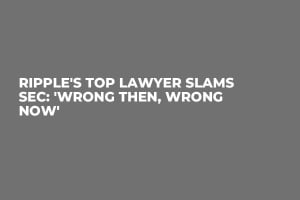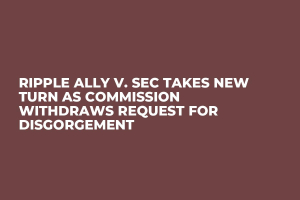A recent statement by Ripple's General Counsel Stuart Alderoty criticizing the SEC for trying to substitute concepts and equate common interests with a common enterprise has prompted lawyer and digital-asset enthusiast Bill Morgan to speculate on how the SEC plans to recognize XRP as a security and "strangle" the crypto industry.
Morgan believes that the SEC is trying to stretch the Howey test to cover crypto by an expansive view of "common enterprise," which allows it to avoid linking it to specific transactions and focusing instead on the adjective "common." He believes that the SEC wants to argue that all that is needed is a common interest.
Morgan goes on to explain that the SEC in its summary judgment motion points to evidence in which it says Ripple touted the alignment of its interests with those who hold XRP. If this does not suffice, then the SEC turns to the fungible argument, legal expert is convinced. This argument in its part is based on the notion that all units of XRP are fungible and rise and fall together, which the SEC alleges is part of the common enterprise, despite the fact that this is just a common interest.
According to Morgan, Ripple's lawyers attacked the fungible point and actually used the example of gold to make their point in the company's summary judgment motion. He believes that if Judge Torres lets the SEC get away with reducing common enterprise to common interest, it will apply the fungible argument to other cryptos.




 Dan Burgin
Dan Burgin Vladislav Sopov
Vladislav Sopov